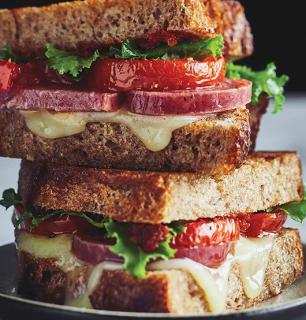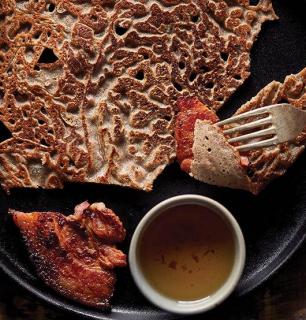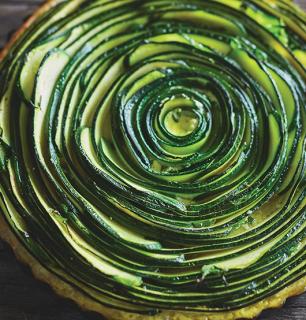What the stomach desires
Amidst the nutritional confusion characterizing our time, there’s one thing that has the power to draw together carnivores, vegans, raw food eaters, flexitarians, even practitioners of the caveman (the hunters and gatherers of the Paleolithic or Paleo era) diet. You got it! Localism! In other words: eating local.
If food has the power to bring people together, it also has the power to divide them. More than ever, eating is in fact a social activity, a way of encouraging practices, of opposing others — like monoculture — of rooting onself, of demonstrating solidarity with the hope of finally making an impact, a difference on the social fabric and on one’s environment.
Nourishing ourselves has become a political gesture more powerful than that of voting. Of course, it’s a biological act, but it’s also psychological, social and societal. Everything we eat, and don’t eat for that matter, has probably never produced such an accurate reflection of our identity and of our relationship with nature.
Our community is shared between junk food fans and those who wear the label of “orthorexics,” or those whose quest for the perfect food hygiene leads some disciples to refuse to eat vegetables that have been out of the earth for more than 15 minutes. And between the two views, there is quite a sprawling grey area.
“At Première Moisson,” explains Josée Fiset, Co-founder of the business, “we decided to work with considerable common sense; that is, to foster a sound balance, abiding by the principle of sustainable agriculture. And, as much as possible, localism. When we were little, we wouldn’t eat blueberries in February. In the winter, we would eat all the preserves that we painstakingly prepared in the summer, along with stored root vegetables. We would prepare more stewed dishes, which was hardly a punishment. My brothers and I embraced the values of our mother, born into a family of 12 children, raised on a farm, the hard way.”
In the bakery’s kitchens today, glazes are prepared with minimum cane sugar. Preservatives and food colouring are off limits. Since the start, marinades and jams have been produced by local artisans and the tea is mostly organic and fair trade. “Few people know this,” explains Josée, “but 70% of the ingredients we use are local and 80% of the flours are produced within a small radius. The wheat is therefore 100% regional. The other grains, such as khorasan wheat (commonly referred to as kamut), are imported from the United States because, to date, they are practically nonexistent in our part of the world.”
In total, there are 6,000 hectares of fertile Quebec land — a stretch comparable to the surface area of the island of Manhattan — that are dedicated each year to the cultivation of exceptional wheats under the auspices of Première Moisson. These grain blends, raised like fine wines and cultivated in a particularly environmentally responsible manner, produce flours exempt of bleaching and chemical processing.
All these agricultural initiatives are beautifully enhanced through a partnership with a wonderful local company: Moulins de Soulanges. The result? Customers end up paying lower prices and eating more naturally, two direct, positive spinoffs from fostering localism. The strategy is not so far off from the dogmas of locavores, who restrict their supplies to a 160-km (100-mile) radius. And our harsh climate should by no means stand in our way of enjoying the deliciously abundant wealth that our region has to offer. There are many ways to benefit from it throughout the year.
We all know that health goes hand in hand with living food. Health is also an integral part of emotional, or spiritual, nourishment. Eating isn’t everything, so again, you need to do so with a certain pleasure, even with particular joy.
“You mustn’t underestimate the fact that food treated with love transmits its contents to the lucky recipient,” believes Josée strongly.
One day, maybe not so far off, the tobacco fields, once widespread throughout Quebec and that disappeared from our environment little by little, will be sowed, we hope, with barley, rye and khorasan.
In a future closer than you think, we want to believe, we’ll have enough local pecans and hazelnuts. Mushrooms too. Meanwhile, we can dream of the day when kiwis, which certainly grow in Quebec, will no longer emit five times their weight in CO2, as they currently do along the long journey from Australia to our plate!
WHY EAT LOCAL?
Because it’s beneficial for the consumer, for the planet and for the development of our regions. Because fresh products are more flavourful, more nutritious and free of preservatives. Because it sustains agricultural biodiversity. Because by reducing the energy consumption associated with transportation, storage and the commercialization of food, our impact on air pollution and climate change will be minimized. Because this action considerably cuts down on the consumption of packaging. Because by purchasing without the middleman, we are building a relationship of trust with the producer, we can be better informed and we gain a certain power over the food we consume, in addition to contributing to this producer’s livelihood.
SO WHAT IS LOCALISM?
A doctrine that involves prioritizing what is local, without drawing up borders, in order to promote participatory democracy, social harmony and the local economy, i.e., local employment, and the preservation of the environment through an ecological footprint related to reduced transportation of people and goods.
WHAT IF WE SIMPLY CAN’T FIND A LOCAL INGREDIENT?
We then turn to organic. And if we have searched in vain for an organic food item? We fall back on a small producer (that little farm rather than multinational X). And if the small producer is nowhere to be found? At that point, we travel to the small retailer to ensure that the money stays in the community. And if we still can’t find what we’re looking for? We then turn to an artisanal product (a blue cheese from Auvergne, for example).
* Know that the Aliments du Québec labels confirm that 80% of the ingredients are from Québec.
FOOD INCONSISTENCIES ARE NOTHING NEW
In Gulliver’s Travels, written in 1726, the inhabitants of Lilliput and Blefuscu sacrificed 30,000 soldiers and 40 vessels on the basis of a trivial disagreement: The Blefuscudians and the Lilliputians did not agree on which end of the egg to crack. The small or the big end? The moral of this story: Any principle can become a problem when applied excessively or obsessively.
Our recipes
See all recipes




